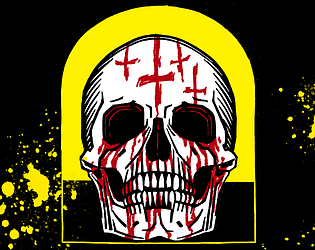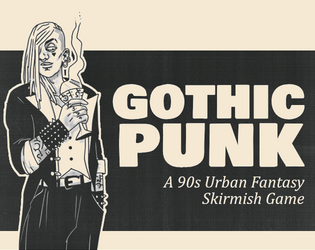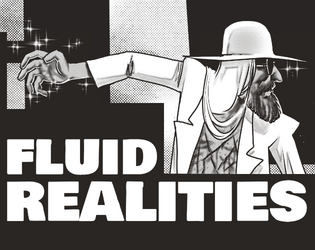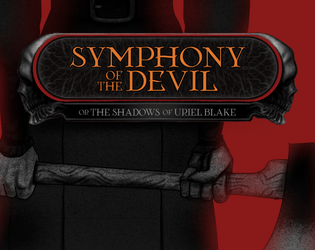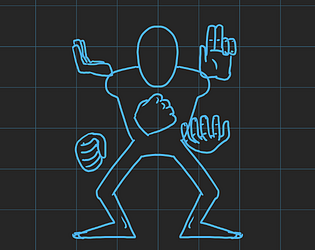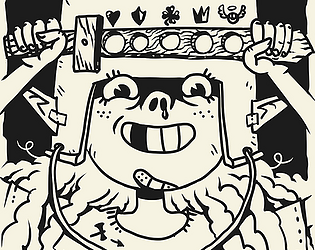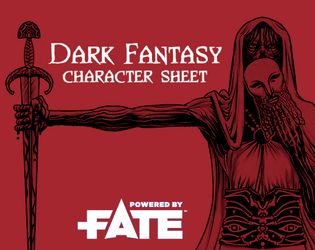Great stuff! Do you allow me to translate 28 Psalms into Brazilian Portuguese? I'm sure the Brazilian community would love to play this game.
Bruno Prosaiko
Creator of
Recent community posts
Olá. Eu fico feliz que tenha gostado do meu trabalho.
Eu suponho que todos os autores de materiais gratuitos que você disponibilizou aqui são fáceis de encontrar em redes sociais, então não entendi o motivo de não ter entrado em contato para pedir autorização antes de disponibilizar o material de outras pessoas no Itch.
Na prática, as coisas gratuitas que eu fiz podem ser compartilhadas livremente, apenas seria uma cortesia bem vinda pedir autorização antes, não apenas para mim, mas para os outros autores também. Descobri que esse material estava aqui por acaso ao entrar no grupo do Facebook.
Só estou enfatizando isso porque o Itch é uma loja, então não é a mesma coisa do que disponibilizar numa rede social ou num blog. Alguns autores podem se sentir ofendidos ao ver seu material numa loja sem o seu consentimento mesmo que seja "vendido" de graça.
Enfim, não estou aqui para criar caso com a situação ou gerar discórdia, apenas para dar um toque e recomendar que reavalie essa postura.
Bons jogos!
I don't remember this happening in skirmish games, but I've had something similar happen in some board games. It's pretty unpleasant.
I'm always concerned that the losing side still has a chance to fight until the end of the game. It's one of the reasons behind some of the Karma mechanics.
I'm making notes for the new version of the game. Among them, I think about making Karma more useful for the player depending on the number of their models out of play. It still needs to be tested, but I hope it helps with the balance.
I feel like there's a fine line between giving the losing player a chance to continue and "punishing" the winning player. It seems quite easy to get the dose wrong.
Achei muito maneiro! Gostei bastante do material.
Quanto a erro de digitação, o único que lembro de ter visto foi na página 27 da versão em português: "Mountado".
Sobre as regras, pessoalmente, eu separaria Corpo em Força (englobando Constituição) e Destreza. Um só atributo para representar os três clássicos de D&D soa muito minimalista pro meu gosto, mas entendo a escolha.
Gostei muito da abordagem para as classes e os diversos procedimentos. Adorei o sistema de magia (meu favorito atualmente).
Considerando a influência de DCC, acho que o sistema de Cicatrizes poderia ser melhor aproveitado. É uma crítica minha aos hacks de ItO em geral. Acho um desperdício só ativar essa tabela bacanuda quando se atinge exatamente zero PV. Em um hack pessoal que estou escrevendo com inspiração em Warhammer Fantasy, estou trabalhando a ideia de tabelas de críticos que são roladas em qualquer ferimento crítico dos Odd-likes. Assim, qualquer dano que ultrapasse o PV e passe para Força/Corpo, é rolado na tabela de cicatrizes. Acho que isso funciona bem para emular a vibe das tabelas de críticos do DCC também. Recomendo trabalhar com essa ideia, nem que seja como regra opcional.
Enfim, curti muito seu jogo e espero testá-lo um dia. Já recomendei pra muita gente!
Espero que eventualmente saia também uma tradução do livreto do mestre. ^^
Very cool hack! At first glance, it seems to emulate the genre very well in a really simple way. Well done. ^^
I saw that you mentioned Shadowrun among your inspirations. Any suggestions on how to approach the fantasy elements of the Sixth World with your hack? Any Cairn-derived material that you think particularly resonates with the fantasy of Shadowrun?
Let's see. The Hellbender paradigm says:
"Even the devil can be tamed if you know his weaknesses".
This paradigm indicates that the magician is someone who deals with secrets and manipulates weaknesses. Maybe in a John Constantine kind of vibe. This can be interpreted in several ways, for example:
- Performing a ritual to discover an enemy's weakness, such as a fear or a desire.
- Manifesting someone's fear, after discovering it.
- Concentrating for a moment to discover the weak point of a structure, such as a wall, where even a punch could knock it down.
- If you know someone's weakness, you can give them an order that they cannot refuse.
- Forcing someone you have done a favor to do something for you in return.
- Perhaps summoning lesser demons to perform small services, as long as you compensate them adequately.
- Forcing someone to assume their true form if you know their true name.
And so on. The idea is to extrapolate the interpretations of the paradigm to create evocative effects.
Sorry for the huge delay in responding. I don't have any references for spells yet. Since this is a game heavily inspired by Mage: The Ascension, you can take inspiration from the type of magic that is done there, just simplifying all the systems involved.
Basically, the character can do anything that their Paradigm (belief) allows. This is quite open, I know. In fact, characters can try very powerful effects, but doing so openly can accumulate Paradox and draw unwanted attention.
In the end, it is up to the players to decide how epic or subtle the game will be, and the GM is encouraged to respond accordingly.
I really enjoyed this game. I found the setting to be highly evocative; the text and illustrations made my mind wander and left me eager to try it out.
I loved the magic traditions, though I was a bit frustrated to see that most spells are focused on causing or healing damage. I felt the effects could be more creative.
I appreciated that the brief bestiary has its own flavor and doesn’t just adapt traditional creatures to the setting.
The system seemed quite interesting, although, just by reading, I have trouble imagining how material from other OSR/NSR games might be adapted to this one. It's something I need to experience in practice to fully assess.
Overall, very well done! Shadows of a Dying Sun is a very intriguing game, both in terms of setting and mechanics.
Is there any plan for a license for third-party creations?
I read it and thought it was really cool. I really liked the context of the game; simple, brief and evocative. The art is also quite evocative. I felt like playing it. ^^
When I first read it, I think I identified two errors in the text:
- On page 8, it says to buy additional equipment with 20 Coins. On the next page, it says that the characters start with 3d10 Coins. I imagine the first one is correct because it also appears in the additional equipment section (page 11).
- Raised Skeleton (page 40) has the peculiarity of the Striga's legs.
Regarding the mechanics, I was unsure whether the armor values aren't too high to the point of slowing down the game, especially for the bosses, but I suppose the damage explosion and the damage advantage rules can balance this out. I need to test it out to evaluate it in practice.
I especially liked that the game has an open license. I hope to do something for Striga in the near future. ^^
Well done. You made a really cool game!
I loved the game, although I have some doubts about how it works that I will probably only be able to resolve after playing it.
From what I understand, there is a possibility that a mek can explode without having done anything just by rolling a 6 on the OVERHEAT TABLE after the end of the round. Is that right? If so, it sounds pretty chaotic. XD
Would you allow me to translate the game's text into Portuguese? That way, my fellow Brazilians who don't understand English can enjoy it with me.
Great game. I'm waiting for the next updates and I'm looking forward to playing it.


